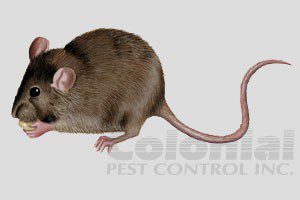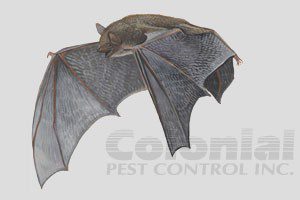Pest Control & Exterminator Services in Quincy, MA
Serving Norfolk County since 1984
Quincy, MA is a New England town known for many things: it is the city of presidents, the city of legends, and the birthplace of the American dream. It is named after John Adams and John Quincy Adams, both of whom were born in the town that would become Quincy, as was John Hancock. Although Quincy is considered a section of metropolitan Boston, it is also the eighth largest city in Massachusetts, full of its own businesses, resources, and local charm.
Thanks to its location on the cape, Quincy experiences plenty of its own unique pest control problems, in addition to those typical to New England towns. Specifically, rodents are a big problem in areas adjacent to the water, since rats and mice thrive in damp, wet areas where they can find plenty of places to stay warm and reproduce through the winter, avoiding the need to hibernate. Unfortunately, these safe havens are often inside the walls of your home, where there’s access to food and water.
Low-Toxicity Quincy MA Pest Control for your New England Home
Colonial pest control understands the importance of keeping homes both pest and toxin free, for the safety of your children, pets, and other family members. That’s why we use chemical-free, low-toxicity pest control methods to keep your New England home free of unwelcome inhabitants. We recognize that insects, animals, and other forms of wildlife are still part of the natural world, even though we regard them as “pests” once they encroach on your living space. We use prevention, live removal, and relocation of unwelcome insects and wildlife whenever possible.
Many of the pests we remove from your property can still be beneficial to the natural world in a more remote location of New England, where they can better thrive in their natural environment. Today, we’ll focus on the four-legged, fuzzy, and occasionally flying creatures: various rodents and bats.

Mice, Rats, and other Rodents – Rodents become problematic in the fall as they begin to move indoors to build nests for overwintering. Mice can squeeze themselves to the width of a quarter (about the size of their head) in order to fit through cracks and other tight spaces, making it easy for them to move into your home. Rats are much bigger than mice, and they can be heard inside walls, under floor boards, and in basements, attics, and crawl spaces as they build their nests.
Mice, rats, and other rodents are not as prolific during the summer months, when it becomes warm enough for them to move outdoors exclusively for several months. This makes summer the time to start preventing rodent infestations for the winter months. Rodents can be difficult to exterminate through humane methods once they’ve moved into your home. Live traps may are often the only humane DIY option, and they require a lot of work and maintenance in order to keep rodent problems at bay.
Rodent prevention in the Quincy, MA, area, means sealing up the holes and cracks around your home during the summer months to keep rodents from getting inside when it starts to get cold. Natural deterrents such as lavender and citrus can be placed in problem areas to discourage rodents from building their nests there. If rodents are allowed to move in, they reproduce at a rate that’s often too fast to keep up with. A female rat, for instance, can become pregnant every 60 days and will give birth to thousands of babies during her short span of reproductive years. These babies can begin reproducing themselves by the time they are only a month old.
Rodents are highly destructive and can take over quickly when left to reproduce at free will. Rodents are thought to be one of the biggest culprits of fires caused by faulty electrical wiring, since they are known to chew through everything. If they get inside your home they will destroy everything from your clothing and furniture to the food in your kitchen. Rodents are one of the biggest carriers of disease in the world and can easily spread germs around the home.

Bats – Bats are often thought of as flying rodents, but they are far less of a nuisance than rodents. Bats can actually be very beneficial to New England homes, as they are one of the best controllers of problematic insects, most notably mosquitoes. But bats can become a problem when they begin roosting in the wrong areas around your home. If bats are able to get inside your home, they can spread diseases such as rabies.
Bats are nocturnal creatures that like to sleep in covered, cave-like spots. In residential areas, the places that bats like to sleep are often in the eaves of your home, including underneath shingles, boards, and siding. In New England, bats are particularly drawn to old barns and other buildings with high ceilings. When bats start sleeping too close to daily human activity, it can become a problem for both the bats and the humans. That’s when it’s time to relocate the bats to a place that’s safer for them and for humans.
Bat control can also be integrated into your home’s structure by giving the bats a proper place to roost and sleep during the day. New England homes can take advantage of bats’ natural insect control instincts by inviting bats to a safe place near the home. Bats can also be kept at bay by practicing some smart New England landscaping ideas, such as building ponds or other natural features that attract bugs in spots away from the home.
